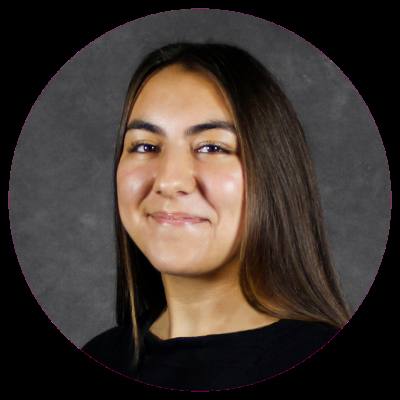Kiltz was inspired by the impact of the residential and vocational program and decided to recreate it in Georgetown. One year later, she founded Brookwood in Georgetown, which operates its own cafe.

The facility creates an environment where individuals with intellectual and developmental disabilities, also known as BiG citizens, are able to learn life skills by working at The BiG Cafe and Shop.
The cafe's menu ranges from breakfast tacos and quiches to sandwiches and salads.
Director of Mission Advancement Tim Curtis has been part of the organization since its early days. After retiring as a pastor, he decided to dedicate his time to BiG. He said all funds raised from the cafe and gift shop go back into growing the program.
What’s special about it?
The BiG Cafe is part of the Georgetown program which started out using free church space, and has since developed into a three-campus setting where attendees are welcome to participate in the making of various products.
Curtis said citizens take on various roles at the cafe depending on what they are comfortable with, no matter their abilities, including cutting fresh fruit in the kitchen or handing out menus to cafe guests.
“We are a God-centered program because we see the image of God in our citizens,” Curtis said. “They don't have to be any particular religion. We're not associated with any denomination. We accept everyone but it's just at the heart of who we are.”

The BiG Shop sells items made by BiG citizens including Christmas ornaments, ceramics, homemade pies and fudge, jewelry, organic dog treats, shower steamers, and resin charcuterie boards.
“They make just beautiful things sold here and it gives them a sense of purpose and a lot of them have incredible creativity and they're able to use that here,” Curtis said. “It shapes their lives to know that they're not on the fringes anymore, but they're actually doing something meaningful.”

While BiG has provided more resources for the Georgetown community, it has also highlighted the need for more programs like it, Curtis said.
“It's the idea that you do for a few what you wish you could do for everyone,” Curtis said. “The need is overflowing. There are so many special needs children and adults, and just in Central Texas, so we actually kind of help meet the need.”
Some citizens have moved from other states to join the program, and as a result of BiG’s years-long waitlist, Curtis said the organization has mentored other communities across the country on how to recreate its vision.

If an adult is accepted as a citizen, they pay a $1,000 monthly tuition for the program; however, need-based scholarships are available.
Tours, which educate attendees about the program, are available Wednesday mornings.
- 905 N. Church St., Georgetown
- www.bigtx.org/store-cafe





